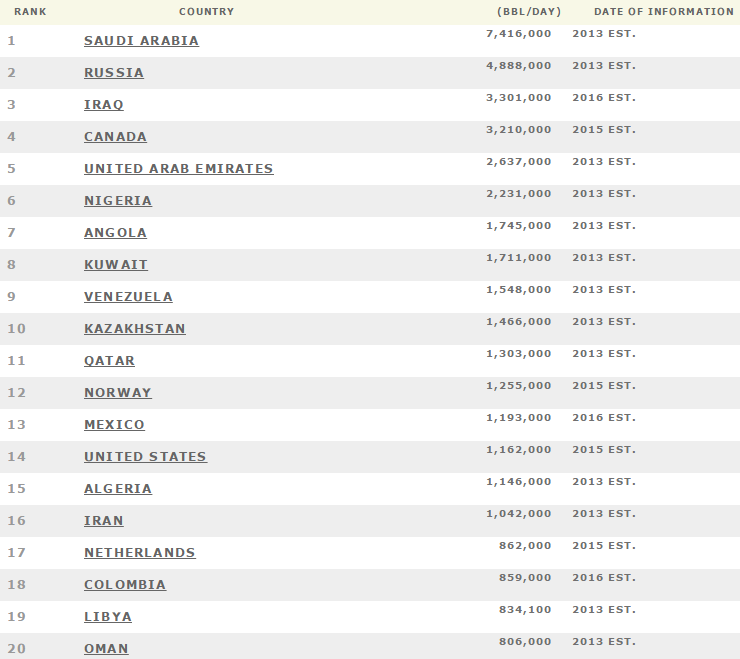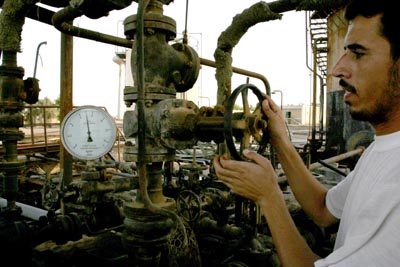Iraq is planning to triple its refining capacity as the third-largest oil exporter increases crude oil production, Bloomberg reported, based on an interview with an official in the country.

Iraq’s current production is 4.5 MMBOPD, way beyond in-country refining capacity
Currently, Iraq is capable of processing about 500 MBOPD, far below the ~4.5 MMBOPD the country produced in 2016. Iraq exports much of this surplus crude, making it the third-largest exporter of crude oil according to Bloomberg.
The small amount of refining capacity means that one of the world’s largest oil producers actually has to import gasoline and other refined products. The country spends more than $2 billion each year importing various refined products.
Multiple projects planned
A group of planned projects, if they are completed, would go a long way to fixing this problem.
The biggest project is a second refinery in Basra, which would be capable of processing 300 MBOPD. The bidding deadline for the plant has been deferred by three months as more companies expressed interest in the project.
Bloomberg reports that two Chinese companies are considering a proposed 150 MBOPD facility in Nasiriya. Bidding recently closed on a 70 MBOPD refinery in Kirkuk, and the government will announce results later this month.
According to Bloomberg, Iraq is looking to further boost its refining capacity by investing overseas. This would have a side benefit of opening up markets for Iraqi crude oil. Bloomberg reports that the Iraqi government is currently discussing investment in refineries and depots with China and Oman, and will soon begin similar discussions with Singapore and Indonesia.
Karbala refinery encounters problems; govt. paying the contractor in crude oil
However, not everything is good news for expansion projects. The 140 MBO refinery in Karbala has encountered significant delays, and the government is currently paying the contractor in crude oil while it attempts to secure further funding.
Iraq’s OPEC deal compliance low, additional production growth on the horizon
A recent survey by S&P Global Platts reported that Iraqi production increased by 70 MBOPD to 4.43 MMBOPD in May. According to Platts, Iraqi cut compliance is only 70%, one of the lowest among OPEC members.
In March, the country’s oil minister announced plans to increase output to 5 MMBOPD by the end of the year. At the time, the government was in talks with Exxon to develop two oil fields. These two fields could produce a combined 500 MBOPD, according to the minister. Bids to develop three fields in southeastern Iraq will be open in late 2017. It is not clear if the government’s position on increasing production has changed, as OPEC has agreed to a cut extension since these comments were made.
The country changed its laws in 2007 in order to make international investment into downstream operations more attractive. Iraq loosened the control of the state oil company by allowing foreign companies to build refineries and operate them over a 40-year period.
ISIS aggression shuts in refining capacity in 2016

The need for increased refining capacity became salient last fall as ISIS targeted oil and gas operations around the country. In mid-2014, Iraq lost 310 MBOPD of refining from the Baiji facility, while attacks at the end of July took the 175 MBOPD Bai Hassan facility offline temporarily. Bai Hassan later resumed operations at 100 MBOPD, but continued tensions between the central government in Baghdad and the semi-autonomous region of Kurdistan, which now controls the area around the facility, had left its potential output in limbo.
Iraq has a number of projects in the works to help recoup the lost capacity, including a 140 MBOPD facility at Karbala, which is slated for completion in 2019. So far, it is the only grassroots facility to reach the construction phase, and already it is behind schedule due to funding shortfalls from lower oil prices.

